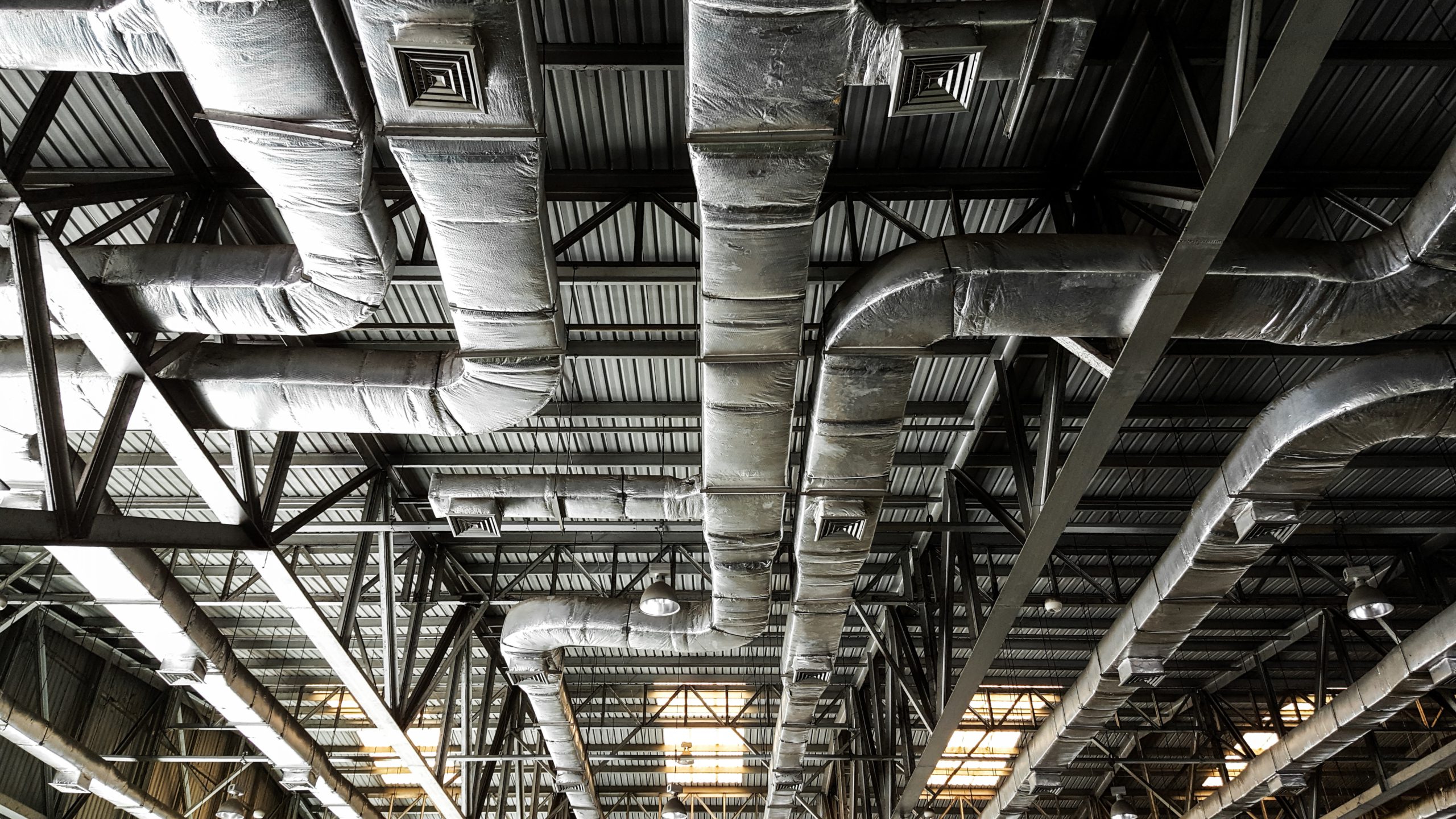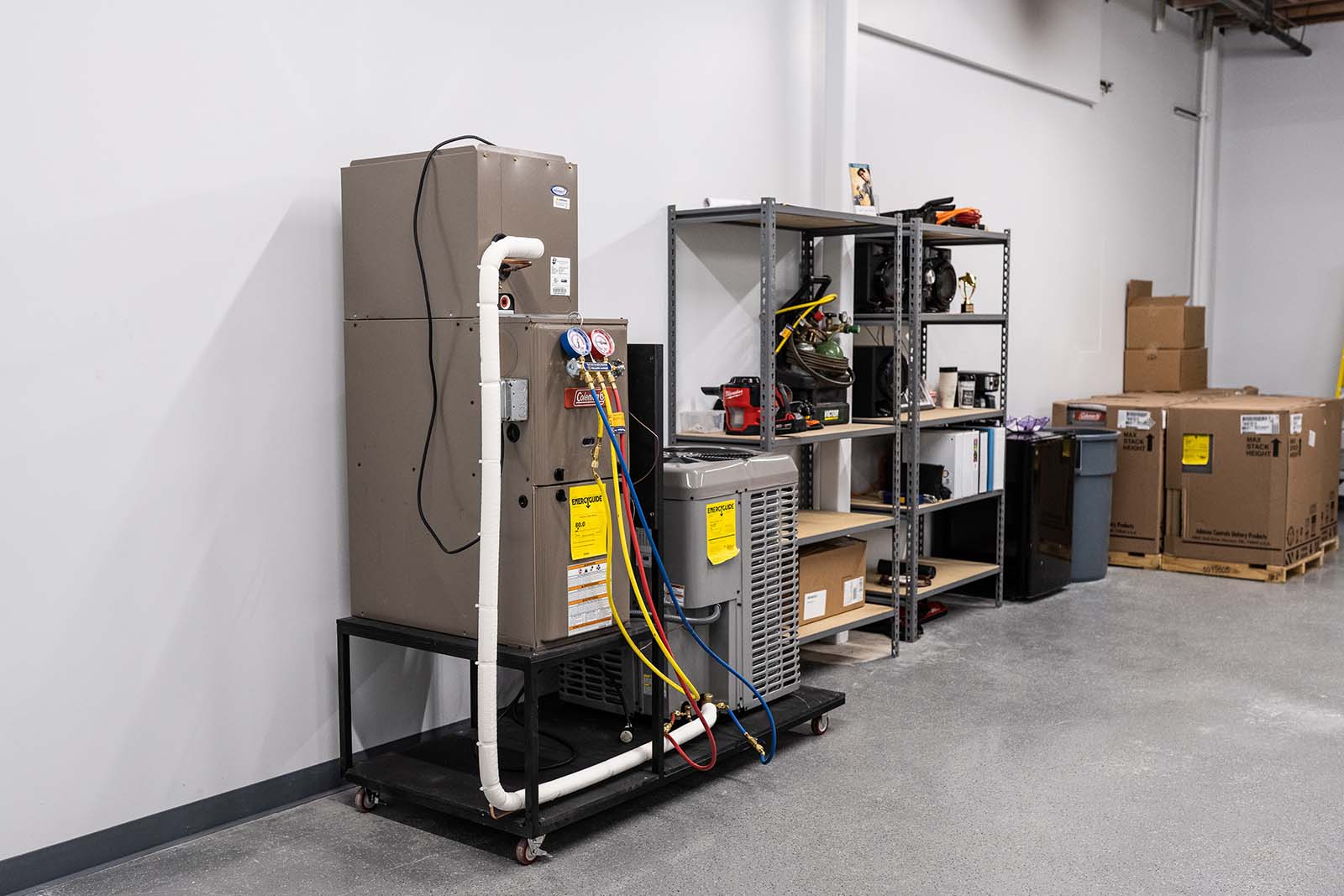Commercial HVAC Contractor Providing Professional Heating and Cooling Solutions
Commercial HVAC Contractor Providing Professional Heating and Cooling Solutions
Blog Article
An Extensive Check Out Cooling And Heating Solutions and Their Effect On Energy Effectiveness and Cost Cost Savings
The duty of heating and cooling solutions in boosting energy effectiveness and accomplishing price financial savings is extra important than ever before, as homeowners and companies look for lasting services in a significantly eco-conscious world. With technological innovations like clever thermostats and high-efficiency elements, the potential for maximizing system efficiency is large. Yet, real impact of these technologies depends largely on normal upkeep and proactive issue monitoring. As we check out the detailed partnership in between heating and cooling systems and functional costs, consisting of the shift in the direction of eco-friendly alternatives, the inquiry arises: exactly how can these methods be effectively implemented to make the most of both economic and environmental benefits?

Relevance of Cooling And Heating Solutions
heating and cooling systems are a vital component of contemporary buildings, playing an essential role in maintaining comfy and healthy and balanced indoor settings. These systems, including ventilation, heating, and air conditioning, are vital for managing temperature, moisture, and air top quality, consequently making sure the wellness of owners. Efficient cooling and heating systems contribute considerably to creating an optimal indoor climate, which is essential for both industrial and property spaces.
In commercial structures, a/c systems are essential to offering a efficient and risk-free setting. By managing indoor climate problems, these systems aid prevent the development of mold and the spread of air-borne impurities, thus safeguarding the health of staff members and clients. Furthermore, in residential settings, cooling and heating systems enhance living conditions by using regular thermal comfort and improving interior air quality, which is essential for overall wellness.
Furthermore, the layout and maintenance of cooling and heating systems have a direct effect on energy consumption and operational expenses. Effectively made and kept systems can substantially reduce energy use, leading to decreased energy bills and a smaller sized carbon impact. The effectiveness of these systems therefore plays a vital duty in promoting sustainability and energy preservation within buildings, highlighting their value in the modern-day building landscape.
Advancements in Heating And Cooling Technology
Innovation in HVAC technology is changing the method buildings take care of interior environments, ushering in a brand-new period of performance and control. Recent advancements have concentrated on enhancing energy consumption while enhancing user convenience. One notable growth is the assimilation of smart thermostats, which utilize expert system to learn tenancy patterns and change temperature levels appropriately, decreasing unnecessary energy use.
Variable Refrigerant Circulation (VRF) systems represent an additional significant jump ahead. These systems permit for exact temperature control in different zones of a structure, improving convenience and lowering power waste. VRF modern technology is particularly valuable for big business spaces, offering flexibility and scalability.
Furthermore, the development of Web of Points (IoT) devices has actually transformed heating and cooling systems into interconnected networks qualified of real-time data collection and evaluation. This connectivity makes it possible for anticipating upkeep, guaranteeing systems run at peak effectiveness and lessening unforeseen downtime.
Moreover, innovations in products and style, such as using high-efficiency coils and compressors, have actually improved overall system performance - Heating Contractor. The adoption of ecologically pleasant refrigerants also highlights the industry's dedication to sustainability
These technical innovations are crucial in minimizing operational costs and ecological impact, setting brand-new requirements for constructing climate monitoring.
Heating And Cooling Maintenance and Effectiveness
Making sure optimum efficiency of HVAC systems expands beyond technological advancements; it additionally depends upon efficient upkeep practices. Regular maintenance is critical for maintaining performance, decreasing energy intake, and expanding the lifetime of heating and cooling systems. The main goal is to make sure that all parts operate at their peak possibility, thus minimizing power waste and maintaining regular indoor convenience levels.
Routine maintenance tasks, such as cleansing or changing air filters, examining refrigerant degrees, and evaluating ductwork for leaks, are important for stopping unnecessary pressure on the system. Clogged or filthy filters can obstruct airflow, causing the system to work tougher and consume more power. Similarly, poor cooling agent degrees can lower cooling efficiency, resulting in greater operational prices.
In addition, periodic examinations by qualified professionals can identify possible concerns before they intensify into expensive repair services or system failings. These inspections typically consist of examining electric links, calibrating thermostats, and making certain the overall stability of the heating and cooling system. By resolving minor problems early, companies and homeowners can prevent unforeseen break downs and improve energy efficiency.
Affordable Heating And Cooling Solutions
For those aiming to get the most out of their ventilation, air, and home heating conditioning systems without damaging the financial institution, exploring economical cooling and heating services can make a significant difference. One immediate action is to purchase programmable thermostats, which allow customers to set specific temperatures for different times of the day, optimizing power use and lowering unneeded consumption. By automating temperature level modifications, home owners can attain substantial financial savings on energy bills.
Routine maintenance is an additional crucial part of cost-effective cooling and heating management. Guaranteeing that filters are cleaned or changed frequently, ductwork is sealed, and devices are serviced by specialists can my latest blog post avoid costly repairs and boost system long life. Preventive maintenance not just keeps system performance but also aids in preventing unforeseen malfunctions that can bring about costly emergency situation repair services.
Additionally, retrofitting existing systems with energy-efficient elements, such as variable rate electric motors or high-efficiency compressors, can be a sensible investment. These upgrades improve operational effectiveness, minimize power use, and can commonly be carried out at a fraction of the cost of a complete system replacement.
Ecological Impact Reduction
Reducing the ecological effect of HVAC systems is crucial in today's pursuit of lasting living. Heating and cooling systems are considerable contributors to power intake, representing virtually 40% of energy use in business structures. This energy demand often depends on nonrenewable fuel sources, leading to greenhouse gas exhausts and ecological degradation. Transitioning to extra effective systems, such as learn this here now those making use of eco-friendly energy resources, can considerably minimize these influences.
Technical advancements in a/c layout and procedure, including the combination of clever thermostats and energy-efficient heat pumps, are crucial in reducing carbon footprints. These developments permit maximized energy usage, minimizing wastage and boosting general system performance. In addition, taking on regular upkeep practices makes sure HVAC systems run at peak effectiveness, more curtailing unnecessary power consumption.
Furthermore, the usage of eco pleasant cooling agents is important, as traditional cooling agents, like CFCs and HCFCs, have been terminated because of their ozone-depleting residential or commercial properties. Modern alternatives, such as hydrofluoroolefins (HFOs), offer minimized ecological threats, straightening with global ecological protocols. By welcoming these lasting methods, a/c services can play high velocity ac system a transformative duty in lowering ecological effects, promoting energy efficiency, and promoting a more lasting future.
Conclusion

Furthermore, the style and upkeep of A/c systems have a direct influence on energy intake and operational prices. Normal maintenance is important for maintaining efficiency, minimizing energy consumption, and expanding the life period of Heating and cooling systems. HVAC systems are considerable factors to power consumption, accounting for almost 40% of energy use in business structures. Additionally, embracing regular maintenance techniques makes certain HVAC systems operate at peak efficiency, additional reducing unneeded energy consumption.
The transition to eco friendly Cooling and heating systems better advertises and reduces operational expenses sustainability. (Heating Contractor)
Report this page